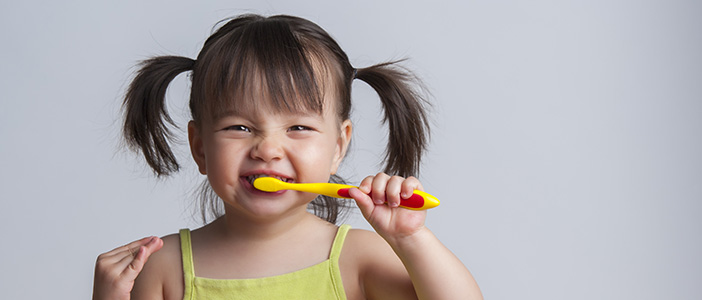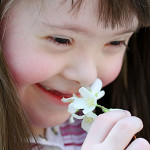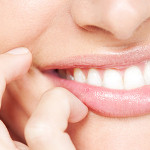Kids Dental Health
What you teach your children about brushing and flossing today may help them avoid complicated dental procedures tomorrow. While good dental health is critical for everyone, regardless of age, instilling healthy habits in kids early may prevent the dread typically associated with climbing into the dentist’s chair. This fear often comes from personal experience with painful and lengthy treatments or seeing friends’ and family members experience similar procedures. By creating a home environment that sets a positive example for your children, you’ll turn dentist visits into stress-free occasions.
The importance of dental care
The health of your children’s teeth and gums can have a direct impact on their overall health.
It’s important to remember that the health of your children’s teeth and gums can have a direct impact on their overall health. While poor dental hygiene can lead to gum disease, decay, and tooth loss, the bad news doesn’t stop there. Research suggests that the inflammation from periodontal, or gum disease, puts one at a greater risk for diabetes, Alzheimer’s, and heart disease.
Even your wallet can feel the affects. Cavities resulting from a lack of care will result in expensive procedures to restore the health of the tooth, or if left untreated, remove the tooth. While dentures are an available, worst-case option, they can be uncomfortable and are not as effective as a natural tooth.
With modern dental treatment and fluoride toothpastes, serious dental complications can be avoided completely. For children, there are now sealants to protect new teeth and, of course, regular cleanings and fluoride treatments to combat cavities. A dentist and hygienist can recommend procedures that will be beneficial for your children, as well as show them proper brushing technique.
Caring for your baby’s teeth
Good dental care can start as soon as your baby’s teeth are visible, which typically begins at approximately four months of age. Initially, you may want to use a washcloth to clean your child’s teeth and eventually move to a small toothbrush. Also, begin regular dental appointments for your child during his or her first year. This will give your child a chance to get used to the dentist and get comfortable with these new surroundings, all of which will make future dental appointments much easier. While toothpaste may not be necessary for a baby, children should begin using a small amount on a child-sized brush at the age of two or three.
Although you may think that it is not necessary to emphasize dental habits until adult teeth begin to come in around age six, baby teeth act as placeholders for the permanent teeth, and damage to them can cause substantial problems later. Baby teeth need to avoid cavities through a child’s early years. In addition, smart dental habits established at a young age will set the stage for life-long healthy habits. Children who have brushed their teeth or had them brushed since they were babies are more likely to understand the importance of this as they grow and develop permanent teeth.
Electric toothbrushes for kids
Electric toothbrushes are a more efficient alternative to traditional brushes. They are more effective at reducing tooth decay because of their ability to clean hard-to-reach places that are difficult for children to access on their own. The spinning motion of an electric toothbrush helps to ensure that each part of the tooth is being effectively cleaned. Some electric toothbrushes also make a different sound every 30 seconds to help your children know when to switch to a different section of their mouth.
While electric toothbrushes are smart, they’re also fun. They are available in a wide range of colors and designs and provide entertainment at tooth brushing time, much more so than a traditional brush.
10 children’s dental health statistics
- According to the Centers for Disease Control and Prevention, almost 20% of kids between the ages of two and 19 have cavities that have not been treated.
- New York Presbyterian Hospital states that tooth decay is found in 20% of children ages four and five, with 86% having some form of tooth decay by age 17.
- More than 51 million school hours are lost each year due to dental related problems.
- Dental problems can affect the self-esteem of children, making them reluctant to smile or engage in conversation.
- Poor dental care can results in poor nutrition and sleep problems for children.
- Tooth decay is five times more common than asthma in young children.
- Tooth decay can be caused by formula, breast milk and juice sitting against the teeth. Children should not fall asleep with a bottle, and continuous use of a sippy cup with sweet drinks should be avoided.
- Drinking water is ideal for developing teeth.
- Children should begin regular dental visits at age one.
- Children should have their teeth brushed as soon as they appear.
Helping children establish good, life-long dental habits from the beginning by overseeing brushing and flossing, maintaining regular dentist office visits, and providing nutritionally balanced meals without excess sugar is the best way to ensure that children grow up with healthy teeth and gums, as well as good overall long-term health. Make your home an encouraging environment that not only supports your child’s proper dental hygiene, but reinforces the many reasons why daily dental care is so critical. Children who are healthy and happy do not hesitate to smile. And those with healthy, white teeth can flash that smile with confidence.
Article Featured on Humana
Looking for an orthodontist in Beaverton, Oregon? Biermann Orthodontics is a cutting-edge orthodontic practice that serves Beaverton and Molalla, OR, and focuses on providing world-class customer service and efficient treatment. We strive to create stunning smiles in the shortest amount of time without ever sacrificing quality.
Visit our Locations page to find a clinic near you, or schedule an initial consultation.
Biermann Orthodontics
503-690-0722
17885 NW Evergreen Parkway, Suite 200
Beaverton, OR 97006



